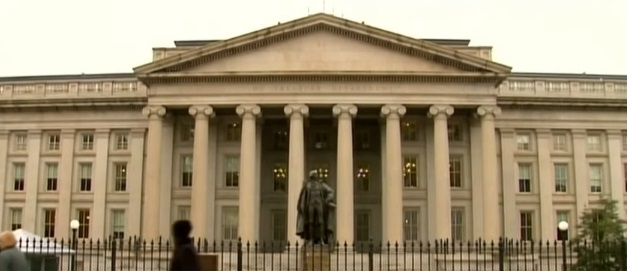A Washington-based think tank has said that US federal government is most likely to default on its debt between mid-December and mid-February 2022.
Friday's projection by the Bipartisan Policy Center (BPC) came after Congress earlier this month approved a bill to temporarily raise the federal government's debt limit by $480 billion to avert a looming debt default, reports Xinhua news agency.
Treasury Department Borrowing Limit
The Treasury Department reached its new borrowing limit of $28.9 trillion on October 22, and is now once again financing the federal government through "extraordinary measures" to prevent a default, according to the BPC.

"With another debt limit crisis on the horizon in a few short months, the clock is ticking for Congress to once again protect the full faith and credit of the US," said Shai Akabas, BPC director of economic policy.
The BPC warned that this new projection should not be misconstrued as reducing the urgency to act, as the enactment of the Senate-passed bipartisan infrastructure bill could move up the date when the United States would be unable to meet its obligations, potentially in advance of the think tank's current projection window.
Intra-Governmental Debt
The Senate-passed bill includes a $118 billion transfer from the Treasury Department's General Fund to the Highway Trust Fund.
If the bill becomes law in the coming weeks, a full transfer of these funds would increase intra-governmental debt and hasten the arrival of the default date, the BPC said.
The debt limit, commonly called the debt ceiling, is the total amount of money that the US government is authorized to borrow to meet its existing legal obligations, including social security and medicare benefits, interest on the national debt, and other payments.








